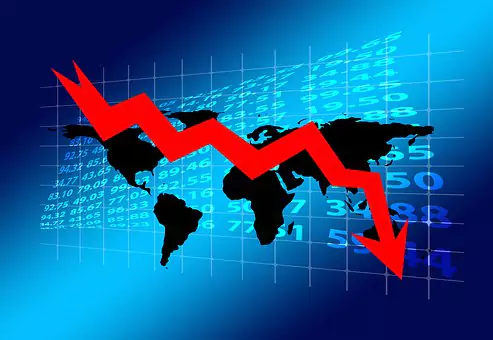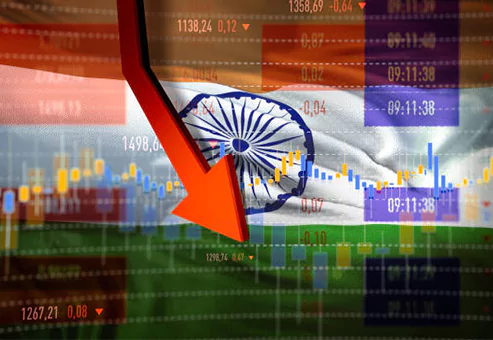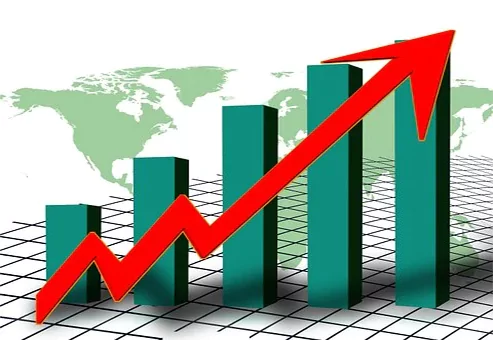The US market recession and the global meltdown known as the Global recession have engulfed the entire world economy with varying degrees of recessional impact. Talking about E-Business, it is a revolution that is transforming businesses all over the world and has an impact on every industry. E-business is much more than the online purchase and the implementations done by the IT department.
E-business has an impact on the entire business and the value chains in which it operates, allowing for a much more integrated level of collaboration between the various components of a value chain than has ever been possible before. Companies can also reduce costs and improve customer response time by implementing E-Business.
Organizations that transform their business practices stand to gain enormously from the plethora of new opportunities made possible by technology. Before proceeding, the paper defines basic concepts.
World growth projections for 2009 have fallen from 4.4 percent to 2.2 percent. Except for Canada, every G7 country is expected to contract next year, and the US and UK are already in recession. Growth forecasts for each BRIC country (Brazil, Russia, India, and China) have fallen by 1 to 3 percentage points.
The Global Effects of the Recession

Let us look at the data for the Global Impact of Recession. Expectations of growth rates for 2008 have fallen in most countries. In October 2007, global growth was forecast to be 4.8 percent. The IMF now predicts it will be only 3.7 percent. The advanced economies' growth forecast for 2008 is now 1.4 percent, down 0.8 percentage points from predictions made in October 2007.
Expectations for emerging and developing country growth in 2008 are now 6.6 percent, down 0.8 percentage points from a year ago. Between January and November, expectations for 2009 growth fell everywhere.
The Impact of the Recession on India

Although no one enjoys or desires a recession, in the age of globalization, no country can remain immune to the fluctuations of the global economy. Heavy losses suffered by central international banks will impact all countries worldwide, as these financial institutions have investments in almost every country.
So, what is the reality in places like India? It would be naive to believe that a US recession would have no effect on India. The United States accounts for one-fourth of global GDP, and any significant slowdown will inevitably have repercussions elsewhere.
Interdependence between the US economy and emerging economies such as India and China, on the other hand, has decreased significantly over the last two decades. Much has happened since then now. The Indian economy has demonstrated a strong and consistent growth trajectory and the forecast for 2008 is 9%.
Indian exports to the United States account for slightly more than 3% of total Indian exports. India has a sizable trade surplus with the US. As a result, the effect may not be as strong, or drastic as it would have been in the 1980s.
Global and Indian IT Industry Structure Global IT Economy Growth

The global IT industry has matured over time and has emerged as a significant contributor to global economic growth. As seen in recent years, the global IT sector, which includes software and services, Information Technology Enabled Services (ITES), and hardware, has been on a gradual growth trajectory with a steady rise in revenues.
The number of contracts, total value, and annualized contract values all exceeded those of the previous year in 2008. The government, healthcare, and manufacturing sectors saw above-average growth among all users. Global and Indian IT Industry Structure Global IT Economy Growth.
The global IT industry has matured over time and has emerged as a significant contributor to global economic growth. As seen in recent years, the global IT sector, which includes software and services, Information Technology Enabled Services (ITES), and hardware, has been on a gradual growth trajectory with a steady rise in revenues.
The number of contracts, total value, and annualized contract values all exceeded those of the previous year in 2008. The government, healthcare, and manufacturing sectors saw above-average growth among all users.
The global software and services industry has reached USD 967 billion, with a 6.3 percent increase over the previous year. Worldwide ITES grew by 12%, the most of any technology-related segment. Hardware spending is expected to have increased by 4% in 2008, from USD 570 billion to nearly USD 594 billion.
The global IT industry is currently in a slump due to recessions in the United States and many other industrial countries, with the extent of impact varying by country / market and industry. According to Forrester, the US IT market will contract to 1.6 percent in 2009, down from 4.1 percent growth in 2008.
The effect of the recession on the Indian IT sector
The current global economic slowdown has put the world economies on a roller coaster ride. The current crisis is having a delayed impact on the Asia Pacific. With sluggish GDP growth expected and a consequent reduction in IT spending, countries/markets with a higher reliance on export markets are expected to be impacted more than other countries/markets with stronger domestic demand. India, one of the world's fastest-growing tech markets based primarily on exports, is also feeling the effects of the global economic crisis. IT spending as a percentage of revenue typically ranges from 3.5 percent in manufacturing firms to 5-6 percent in global retail chains and around 9.5 percent in the banking industry. These may see a slight decrease as companies tend to hold back on new IT deployments.
Recession-Affected E-Commerce
The economic downturn is causing the internet to play an increasingly important role. The net effect of the recession is likely to make the web a larger part of retailing because retail chains and consumer goods manufacturers have seen how consumers use the web to research, even if they buy offline, during the recession. Customers are interested in more than just the actual purchase when they shop online.
According to a Forrester Research and others report on E-commerce, e-commerce is one of the very few markets with growth expectations in 2009 and beyond. Forester Research, The Outlook for US E-commerce 2008 and Beyond, February 2008. According to the report, e-commerce revenue will increase from $204 billion to $335 billion by 2012. Because of accelerating shifts in consumer buying patterns, it is expected that online sales will continue to grow throughout the recession.
A drop in real US GDP of 1.5 percent to 1.9 percent occurs for three to four quarters, but online retail e-commerce is expected to increase by 18 percent. E-commerce increased 14.3 percent in the United States in 2008, but 26.5 percent internationally. This totals 21.5 percent, and even if global economic growth slows.
Conclusion
The Indian economy began 2008 on a high note, but ended on a mixed note, with the global meltdown casting an unavoidable shadow. New Delhi has reduced its economic growth target for the current fiscal year (April 2008-March 2009) from 7.7 percent to 6.8 percent. For the first time in seven years, exports fell in October. Industrial production, one of the main economic drivers, fell 0.4 percent. In November, the rupee fell dangerously close to 50 to the dollar, an all-time low. Furthermore, the government admits that 65,000 jobs were lost between August and October.




